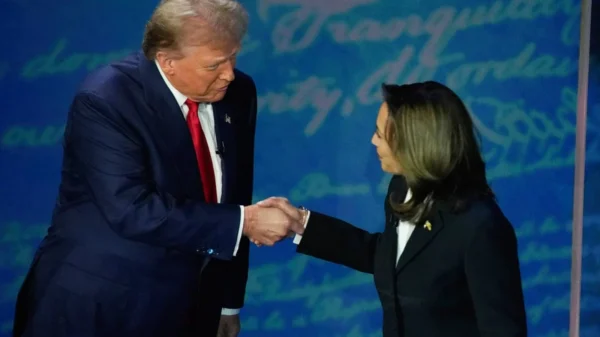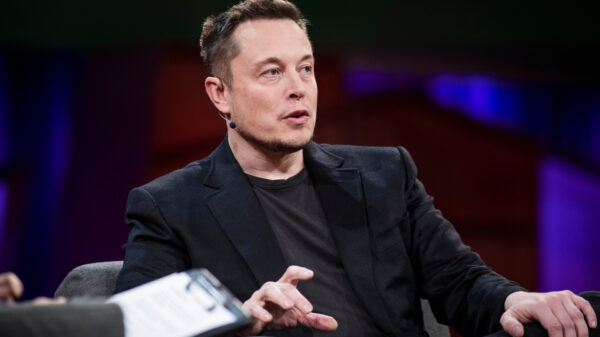Staff writer Matteo Cardarelli addresses the struggles of the Republican Party (GOP) in attracting the youth vote.
The Grand Old Party (small hint in the name) has never been the party of the young. But it has always been able to count on replenishing its support as the electorate ages. Kids, mortgages and the taxman: these were the rites that marked your initiation into the right. The idealism of your twenties gives way to the pragmatism of your thirties and forties, or so we were told. Perhaps this helps explain why many younger people feel queasy at the prospect of voting conservative.
If a shift to the right is contingent on home ownership, a stable job and a family, it’s a small wonder that millennials (aged 27 to 42) – comparatively less likely to have all of these things than earlier generations did at the same age – have bucked the trend. Society has not held up its end of the bargain, so millennials have refused to comply with its unwritten rule: though shalt vote Republican with age. They have rubbished the trend, as the first generation to drift leftwards with age.
But Republicans don’t see it that way. They have been content to sit back and antagonise millennials with offensive bromides. What bigger cliché is there than being told by your octogenarian relative that, if he was your age today, he’d have already bought his first house and found a stable job, all while solving climate change (which, by the way, was also probably made in a lab somewhere in China) and bringing about world peace? It really isn’t surprising that millennials are the first generation to drift left with age. This is not the same world that these grandparents enjoyed.
The midterms largely underlined the GOP’s lack of electoral appeal among the cohort. Dismal polling among young people was one of the reasons why the vaunted ‘red wave’ failed to materialise. Yet on the November tides of political fortune, a newcomer arrived on the scene, bringing with him fresh hopes of redemption. With the election of Florida Democrat Maxwell Frost to the House, Gen Z (aged 11 to 26) had its first elected representative in Congress. A new generation. A brave new world. Here then is a chance for Republicans to right their wrongs, to break free from the anti-youth cast they have moulded for themselves. This new generation is becoming more socially – and electorally – important.
I wouldn’t wait on it. Gen Z is undeniably barren territory for conservatives. They are the most diverse generation in demographic history. Its members are more comfortable using non-binary pronouns, more likely to view women in politics as socially beneficial and more understanding of the pervasiveness of racial discrimination than any other generation. Gen Z is also on track to be the best educated generation in American history. All these factors paint them a deep blue, rather than the purplish colour that Republicans would like to see.
Given these parameters, the challenge is already hard enough. But conservatives apparently like to do things the hard way. They insist on making things harder for themselves at every turn. Older generations, more likely to skew Republican, find the idea of non-binary gender identities (let alone abolishing the institution altogether) an unpalatable mess of semantics, common sense gone haywire This could be written off as quaint, the result of a major generational disconnect. Yet some conservative rhetoric is far more perverse, provocative, antagonistic. One of America’s fastest growing sports has become dunking on the snowflake. As popular as this seems to be among the conservative base, it disproportionately alienates Gen Z voters, whose patience with culture war chicanery is exceedingly thin.
Ipso facto, Gen Z backed Democrats in November by a 28-point margin. While Republicans could have written this off a few decades ago, largely because young people did not vote in high enough numbers to make a difference, turnout among millennials and Gen Z made its mark on last year’s elections. It reached a thirty year high (32%) in 2018, when Democrats won crushing victories nation-wide and while dipping in 2022 (understandable what with Donald Trump, Democrats’ human punching bag, no longer in office) 2022 was second only to 2018 for youth turnout in midterm elections over the last three decades.
Karoline Leavitt, a Gen Z Republican who lost her race, warned that the party’s poor performance in the youth vote “is the greatest challenge for the Republican Party today”. GOP Party Chairman Ronna McDaniel’s spat with the few youth organisers that the Republicans actually have was incredibly appropriate, reminding everyone of just what a mountain Republicans have to climb. There’s shooting yourself in the foot, and then there’s whatever that is. If the party is set on losing this generation’s hearts and minds, just like it did with the last, it is on a good footing.
Some Republicans want to change course; the party’s treatment of millennials may have lost that generation, but Gen Z is maybe still up-for-grabs. ‘Dump the culture war rhetoric, the anti-abortion hawkishness, talk bread and butter issues like the economy instead’, they appeal. Nonetheless, it doesn’t seem like any real changes will be forthcoming. Issues that matter to Gen Z voters, like the environment, college tuition fees and affordable housing, are issues where Republicans have shown apathy at best, and perverse glee in dismantling bill after bill at the worst. Biden’s college debt forgiveness plan prompted reactions like Mitch McConnell’s, who called it “astonishingly unfair” and a “slap in the face” to working class Americans.
By 2024, Gen Z and millennial voters will outnumber Baby Boomers, the GOP’s staunchest supporters, for the first time in a presidential election. So far, the GOP have done an admirable job of pushing them away. This is not to say that Republicans can’t win. But their intransigence will make victory in coming elections a whole lot harder.















